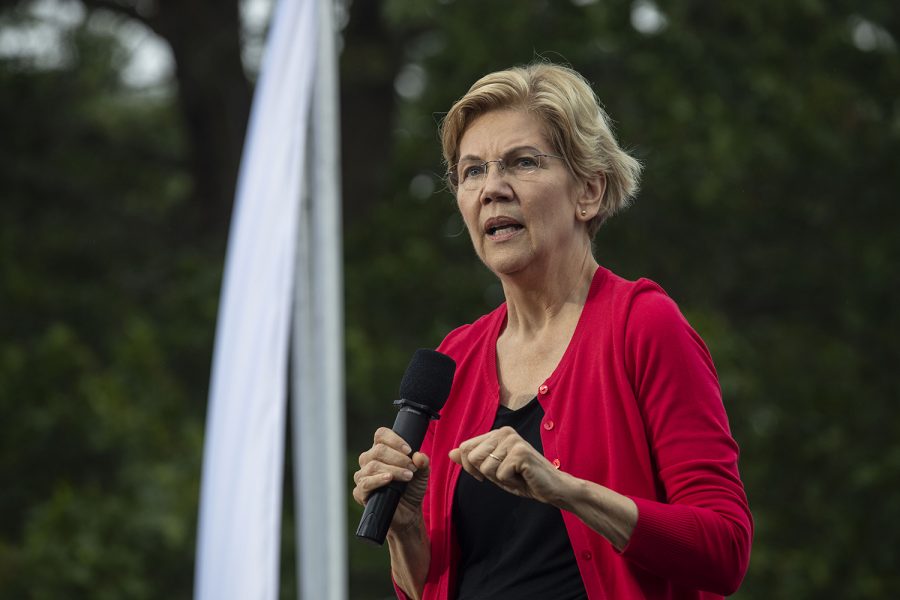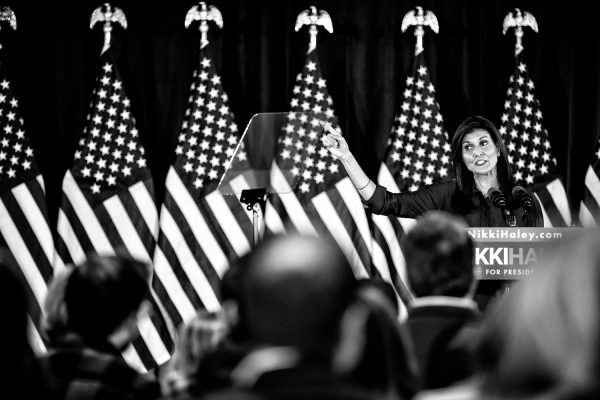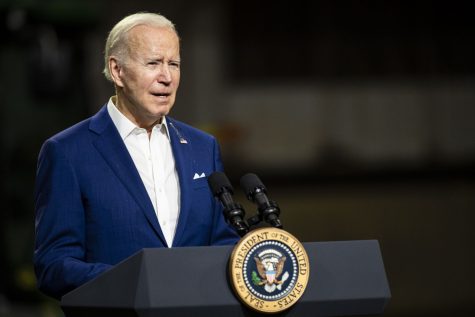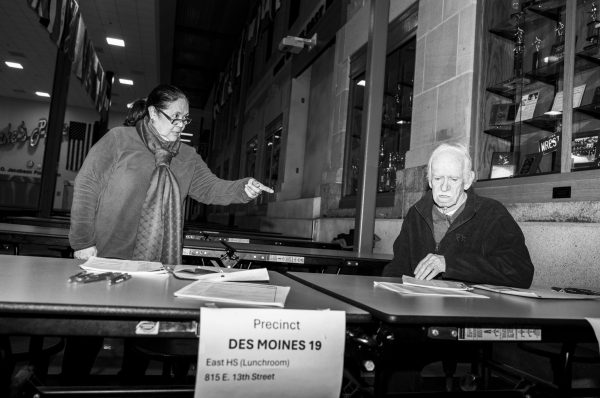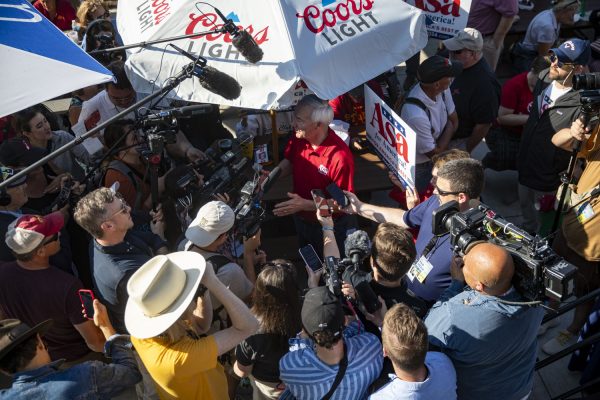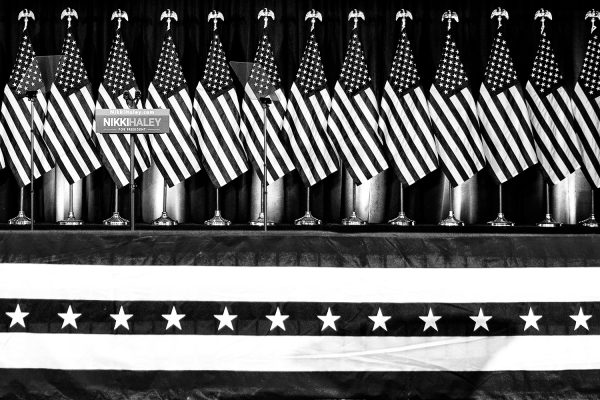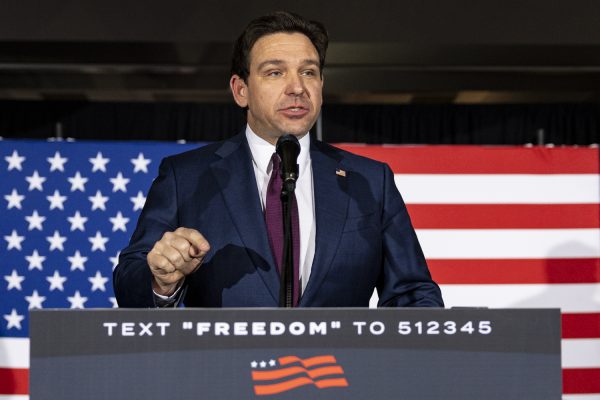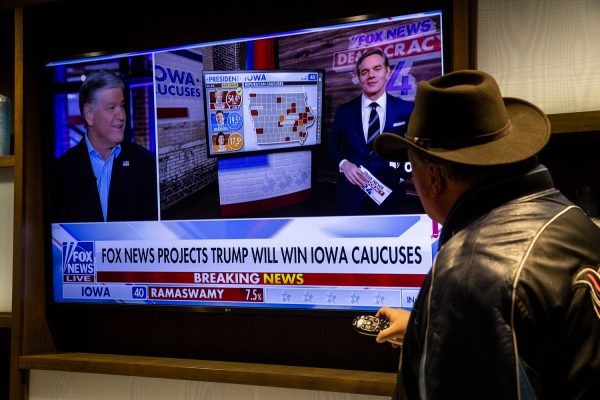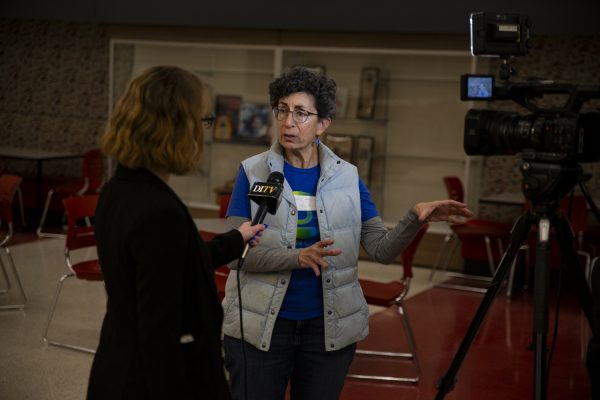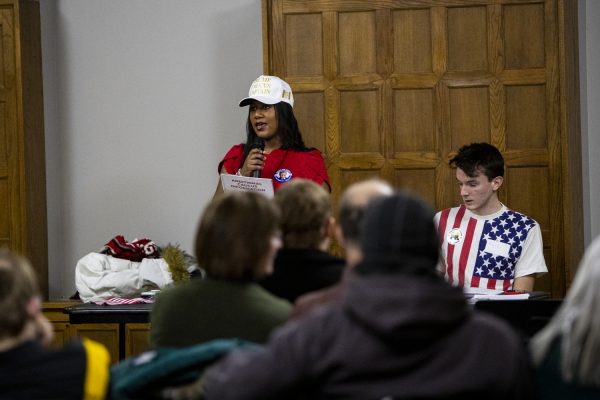National Iowa leaders stand behind electoral college despite calls from 2020 Democrats to remove it
With growing Democratic disdain for the electoral college, many presidential candidates have called for its removal. However, some Iowa Democratic leaders say it would put small states at a disadvantage.
Sen. Elizabeth Warren, D-Mass, addresses the crowd during the Polk County Steak Fry in Des Moines on Saturday Sept. 21, 2019. 17 democratic candidates gave speeches and grilled steaks.
October 7, 2019
In the contest to select the Democratic presidential nominee, voting reform has been a popular topic among candidates in the presidential race. One piece of many candidates’ plans involve eliminating the electoral college.
Abolishing the electoral college has historically been a popular position, University of Iowa political-science Associate Professor Cary Covington said. Constitutional amendments to remove the electoral college have been proposed more than any other amendment.
Several Democratic candidates in the 2020 race are campaigning on abolishing the electoral college, tapping into growing Democratic sentiment following the 2016 election in which President Trump won the electoral vote but lost the popular vote. Only four of the 19 current presidential candidates have publicly opposed electing by popular vote.
“Maybe move to see to it that in this democracy we choose our nation’s leader by just counting up all of the votes and giving the presidency to the person who got the most,” South Bend, Indiana, Mayor Pete Buttigieg said while talking about voter reform in a Sept. 2 visit to Iowa City.
RELATED: Pete Buttigieg opens field office in Iowa City
Despite national Democrats’ calls for removing the electoral college, Iowa’s congressional delegation is in favor of keeping the status quo. Spokespeople for U.S. Reps. Cindy Axne, D-Iowa, and Dave Loebsack, D-Iowa, said both were against abolishing the electoral college.
“Abolishing the Electoral College would put states with smaller populations, such as Iowa, at a disadvantage to states with larger populations,” Loebsack was quoted as saying in an email to The Daily Iowan from communications director Joe Hand. “The Electoral College was established to give smaller states equal representation when selecting the President.”
Republican Sens. Joni Ernst and Chuck Grassley have publicly defended the institution as well. Representatives for Democratic Rep. Abby Finkenauer and Republican Rep. Steve King did not respond to the DI’s request for comment.
Actually @AOC, eliminating the Electoral College would silence our voices here in Iowa and in many other states across the country.
This is just more evidence of how out of touch the Democrats have become. https://t.co/yfm4oDCpkm
— Joni Ernst (@joniernst) August 21, 2019
Still, Iowa’s Democratic leadership stand in opposition to the 75 percent of Democrats who were against the electoral college in 2018, according to national polling from Pew Research Center. Among Republicans, 32 percent favored a popular vote.
The issue wasn’t always as widely split along party lines. The same study shows that removing the electoral college was supported by a majority of both Democratic and Republican voters in 2012.
Covington said the issue has become politicized in recent years because two out of the last five elections have seen a Republican candidate win the electoral vote but lose the popular vote — George Bush in 2000 and Trump in 2016.
“A preponderance of low-population states tend to be Republican,” Covington said. “And of course, the operative mechanism of that is the two votes that every state gets for senators regardless of state population.”
RELATED: Elizabeth Warren hits on economic reform in Iowa City stop
Under the current system, Covington said a vote in Wyoming is worth three-and-one-half times as much as a vote in California. Defenders of the electoral college such as Loebsack say this disparity protects the interests of smaller states that would otherwise be ignored in a national popular vote.
One way several states have attempted to combat the electoral college is through the National Popular Vote Interstate Compact, which is an agreement between 16 states and Washington D.C. to commit their electoral votes to the winner of the popular vote if the states have a combined 270 electoral votes — the threshold needed to secure the election.
Pat Rosenstiel, a senior consultant for National Popular Vote, said he doesn’t see the electoral college as a partisan issue. Though the states that have joined the compact are largely Democratic, Rosenstiel said a national popular-vote bill has been passed in Republican-controlled chambers in several other states, including the Oklahoma Senate and the Arizona House.
To assuage small-state concerns, Rosenstiel said the national popular vote would keep the balance of electoral votes among the states while giving power to voters in heavily partisan states regardless of size.
“What national popular vote does for the small states is it makes every voter in every state, including the small states, politically relevant in every election, and it does this while preserving their [electoral] votes,” he said.



